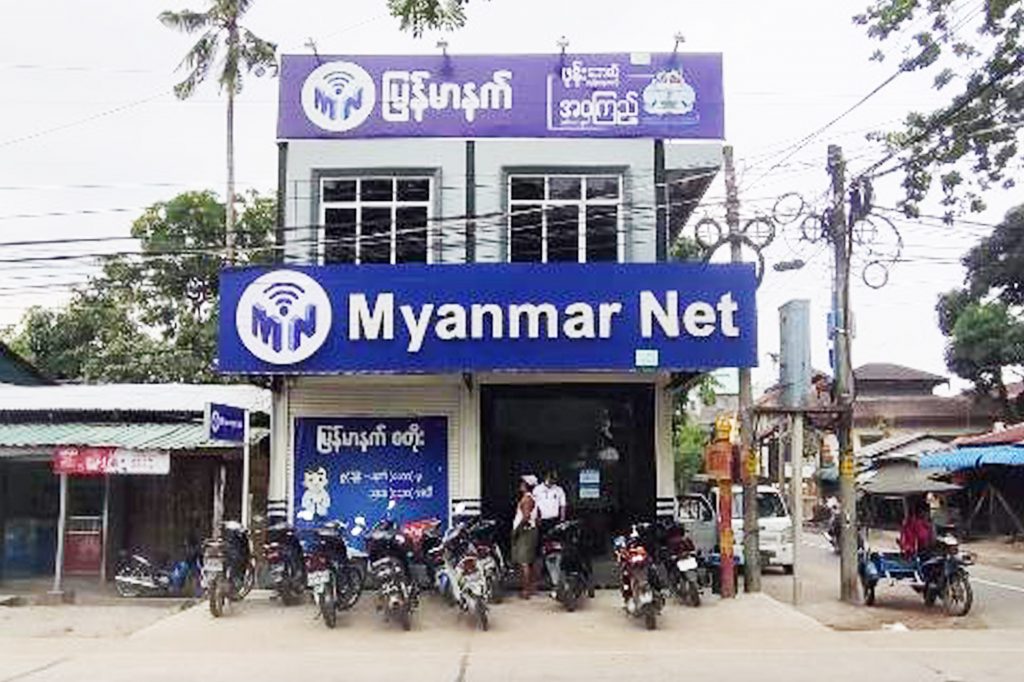European state funds behind Chinese cybersurveillance in Myanmar
An investigation by Finance Uncovered has revealed that almost US$ 40 million from state development funds from the United Kingdom, Norway and Denmark have been invested in a company that operates digital surveillance infrastructure and technologies in Myanmar. The accusations involve software developed in China used to intercept communications, block VPNs, and monitor users. After the 2021 coup d'état, these systems have allowed the military to expand its control over the Internet.
Yangon (AsiaNews) – European state development funds have been invested in a Chinese telecommunications company that operates video surveillance in Myanmar, this according to an investigation by Finance Uncovered.
The latter found that almost US$ 40 million from European state development funds have been invested in Frontiir, an Information and Communications Technology company operating in Myanmar, a country that has been torn by civil war for more than four years.
According to the investigation, the company relies on sophisticated Chinese surveillance technologies in its data centres, which allow Myanmar’s military junta to intercept communications, monitor online activities, and block VPN systems used by people to access news and social media.
The system consists of tools developed by Geedge Networks, a cybersecurity company co-founded by Fang Binxing, the architect of the so-called Great Firewall of China, which blocks users from browsing on topics deemed controversial by Chinese authorities.
The other tools are the Tiangou Secure Gateway, capable of decrypting encrypted traffic, and the Cyber Narrator system, which analyses users' browsing data in real time and allows authorities to identify threats based on online behaviour.
Frontiir, which operates under the brand Myanmar Net, has denied all charges, saying it has never built or designed surveillance systems and has never collaborated with the Myanmar government to intercept communications.
However, documentation obtained during the investigation shows that in November 2020 the company had developed a proposal for a “lawful interception” system, at the request of Myanmar’s previous government led by Aung San Suu Kyi.
The project, which was never implemented, included tracking users’ locations, accessing multimedia content, and reading messages and emails, but under the guarantee of a legal warrant.
After the coup in February 2021, any attempt to regulate these activities was abandoned, and the military instead expanded its digital control tools.
The affair has put Frontiir’s European partners in difficulty. British International Investment (BII), which is under the control of the Foreign Office, has invested US$ 26 million in the company. The Norwegian Norfund participates with US$ 3 million and the Danish agency IFU with another US$ 10.5 million.
The funds, transferred through the Myanmar Opportunities Fund II in 2019, when the country was still on a democratic path, were intended to extend Internet access to the most vulnerable segments of the population. However, after the military coup in 2021, none of the three entities withdrew their support.
According to internal sources, selling the shares now would mean leaving them to Chinese buyers, further decreasing control over the company's activities. Some local NGOs have therefore invited European investors to stay, to avoid abandoning the country to the Myanmar regime and its allies.
In the meantime, Frontiir has seen its profits grow; in the six months following September 2021, it recorded a net profit of US$ 4.8 million.
At the same time, the company has contributed to the infrastructure of the government department responsible for cybersurveillance, installing fibre-optic cables in the headquarters of the Information Technology and Cyber Security Department (ITCSD), still in use after the coup.
Frontiir justified the operation as a licencing requirement and insists that the cables were never activated.
The sanctions imposed by the United Kingdom and the European Union prevent the companies from providing surveillance technology to Myanmar authorities, but since these are indirect investments, the funds are not covered by the international embargo.
Following the coup, Myanmar’s military has waged a full-blown digital war against its own people. Over 2,000 people, for example, have been arrested for posts deemed hostile to the junta.
Back in 2021, the Norwegian company Telenor withdrew from the country after receiving pressure to activate an interception system, deemed incompatible with international law.
According to a former Telenor employee, today no Internet provider can operate in Myanmar without providing access to user data.
01/06/2018 10:34
02/10/2020 12:42







.png)










